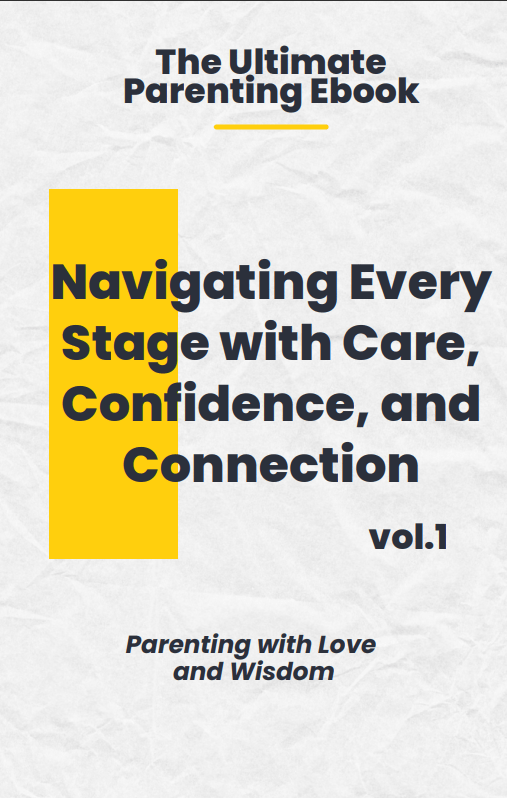Whether you’ve just introduced bottle feeding to your baby or you’re considering it as an alternative to breastfeeding, there are a lot of myths out there that might leave you second-guessing yourself.

In this post, we’ll tackle the most common misconceptions about bottle feeding and provide you with the real, no-nonsense facts. If you’ve ever wondered whether bottle feeding is as good as breastfeeding or if it’s really causing harm to your baby, you’re in the right place. Let’s dive in!
In This Blog
ToggleMyth #1 – Bottle Feeding Means Less Bonding with Your Baby
One of the biggest myths surrounding bottle feeding is that it reduces the bond between a mother and her baby. Many people believe that breastfeeding is the only way to establish a strong connection, but this isn’t true. Bottle feeding offers its own opportunities for bonding.
When you hold your baby close during a bottle feeding, make eye contact, and speak gently to them, you’re still creating that important emotional connection. Whether you’re breastfeeding or bottle feeding, bonding happens when you’re present and engaged with your baby.
Tip: If you’re bottle feeding, hold your baby in a cradling position, just like you would while breastfeeding, and talk to them softly throughout the feeding. This will help strengthen that bond.
Myth #2 – Bottle-Fed Babies Are More Likely to Get Sick
It’s a common belief that bottle feeding makes babies more prone to illness because they’re not getting the immunity boost from breast milk. While it’s true that breast milk provides some antibodies, formula-fed babies can still thrive and be healthy when they receive the right nutrients.
The key to keeping bottle-fed babies healthy is proper hygiene. Always sterilize bottles and nipples and ensure that you’re preparing formula according to guidelines.
Tip: Choose a high-quality formula that’s enriched with essential vitamins and nutrients to support your baby’s immune system. And never skip the bottle-cleaning routine!
Myth #3 – Bottle Feeding Leads to Overfeeding
Another common myth is that bottle feeding makes it easier for babies to overeat. While it’s true that babies might drink more from a bottle than from the breast, overfeeding isn’t an automatic result of bottle feeding. The real issue lies in feeding on demand and recognizing your baby’s hunger cues.
Tip: Pay attention to your baby’s signs of fullness. If your baby stops sucking or starts pushing the bottle away, it’s a good indication that they’ve had enough. Overfeeding can happen with both breastfeeding and bottle feeding, so it’s important to practice mindful feeding.
Myth #4 – Bottle Feeding Is Harder to Manage Than Breastfeeding
Some parents believe bottle feeding is more complicated than breastfeeding. They imagine needing to prepare bottles, wash them afterward, and worry about whether the milk is the right temperature. But the reality is that bottle feeding can actually offer more flexibility and convenience, especially when you’re not the only one feeding your baby.
Once you get into a rhythm, bottle feeding can be a lot easier than you think. You can prepare bottles ahead of time, and anyone can feed your baby, giving you a much-needed break.
Tip: For added convenience, pre-measure formula portions in individual containers, so you can quickly mix bottles when needed. And keep a bottle warmer handy for quick feedings.
Myth #5 – Bottle Feeding Takes Longer Than Breastfeeding
Some people believe that bottle feeding takes more time than breastfeeding. While you may need to warm the bottle or prepare formula, many parents find that bottle feeding can actually be quicker once they get the hang of it.
Additionally, you won’t be waiting for milk to come in or worrying about latch issues, which can sometimes make breastfeeding feel more time-consuming.
Tip: Set up a bottle station in your kitchen where you can quickly access formula, clean bottles, and a bottle warmer. This way, you won’t waste time scrambling to get everything together during a hungry moment.
What to Expect with Bottle Feeding – Tips and Advice
Now that we’ve busted some common myths, let’s talk about the practical side of formula feeding. If you’re transitioning to bottle feeding or just getting started, here are some things to keep in mind:
Timing for Introducing Bottle Feeding
You can start bottle feeding as early as the first few weeks, but it’s generally recommended to wait until breastfeeding is established before offering a bottle. This gives your baby time to learn how to latch properly without confusion.
Tip: If you plan to transition from breast to bottle feeding, do so gradually. Start by offering a bottle once a day and work your way up. This helps both you and your baby get comfortable.
Choosing the Right Bottle and Formula
Not all bottles are created equal, and it’s essential to choose the right one for your baby. There are bottles designed for bottle feeding that reduce gas, prevent colic, and even mimic the breast. You’ll want to pick a bottle that suits your baby’s preferences.
As for formula, there are many options available. Choose one that is appropriate for your baby’s age and needs, whether you’re using cow’s milk-based formula, soy, or a specialty formula.
Tip: Talk to your pediatrician about which formula is best for your baby and keep an eye out for signs of allergies or sensitivities.
Bottle Feeding Schedule
The amount of milk a baby needs depends on their age, weight, and individual appetite. In the early weeks, your baby will likely want to feed every 2-3 hours. As your baby grows, the intervals between feedings may become longer. Always follow your baby’s hunger cues.
Tip: Keep track of feedings and adjust your schedule as your baby grows. Don’t worry if the amounts vary from day to day—babies’ needs change quickly!
Conclusion
Whether you’re breastfeeding, bottle feeding, or combining both, the most important thing is that you’re meeting your baby’s nutritional needs with love and care. Don’t let the myths and pressures around bottle feeding distract you from your own parenting instincts. You’re doing your best, you’re giving it your all, and that’s what counts the most.
Remember, bottle feeding is just another way to nourish your baby, and with the right support, you can make it work seamlessly for your family. Take it one step at a time, and feel free to ask for support whenever you need it.
Have any bottle-feeding tips or challenges? Share your experience in the comments below.
You may also be interested in : Sleep Regression at 8 Months: Signs, Causes, Duration, and Practical Solutions for Exhausted Parents




